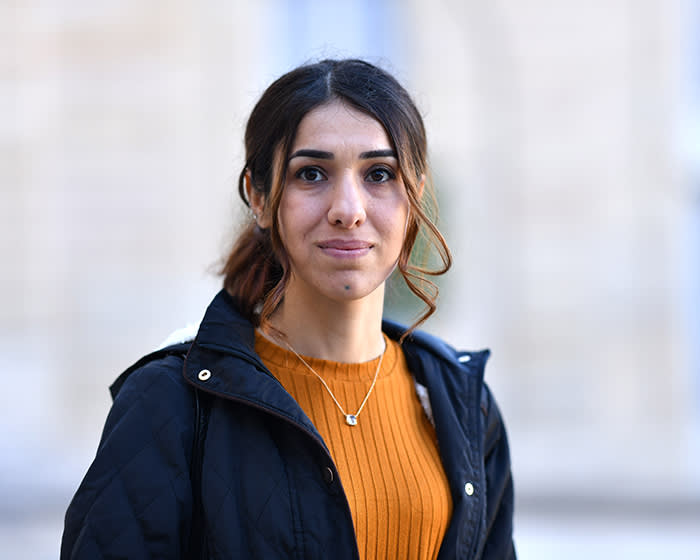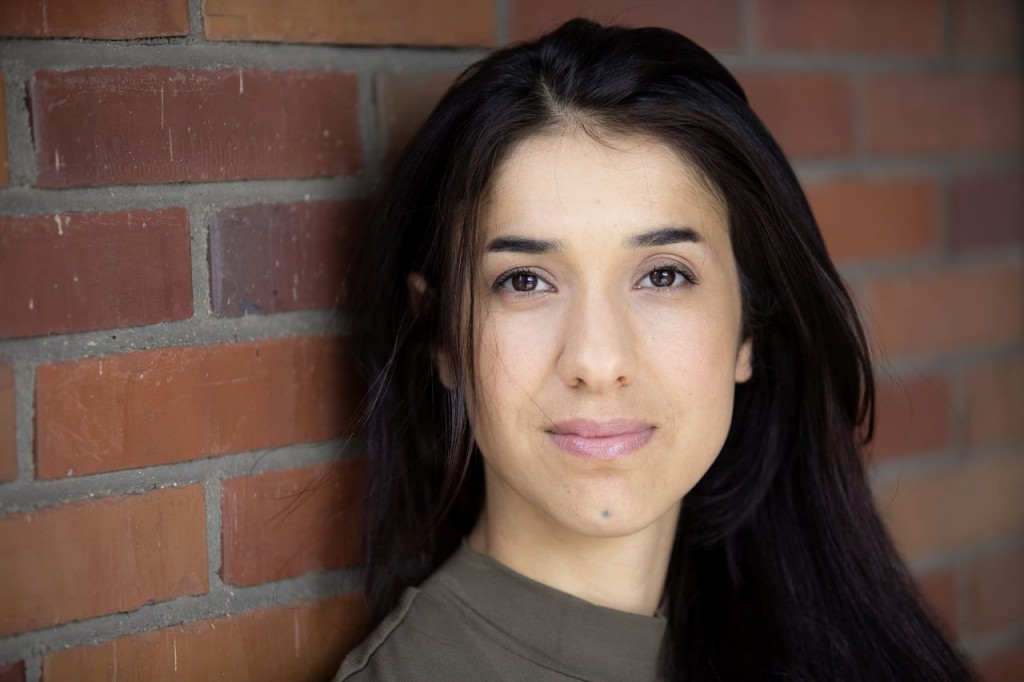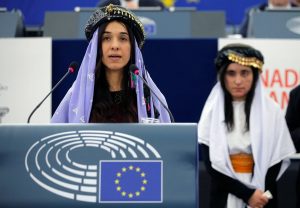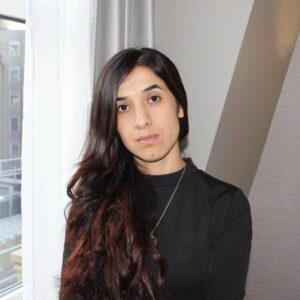Nadia Murad was born into a farming family in Kojo, Iraq. She belongs to the Yazidi ethnic and religious minority. When she was 19 years old, the Islamic State attacked her village and killed 600 Yazidi men, including several of her family members.
Murad and other young women were taken prisoner and subjected to beatings and rape. She managed to escape, however, and make her way to a refugee camp. There she was offered the opportunity to move to Germany, where she now lives.

She was awarded the Nobel peace prize in 2018 alongside Denis Mukwege for ”their efforts to end the use of sexual violence as a weapon of war and armed conflict.”
On October 30, 2019, Nadia and Dennis set up a fund to provide reparations for survivors of wartime rape.
The Global Survivors Fund will provide tailored support to help people recover from the emotional and physical trauma they have experienced. This could be in the form of financial compensation, support to access healthcare services or return to education, or assistance with getting somewhere to live.
The fund will also support governments to set up their own reparation schemes.
Commenting on the development, Nadia said ”Reparations are a step toward restoring dignity to survivors who often do not have any means to seek justice for the pain and suffering they have endured.”
”A global fund is an innovative solution to providing survivors with a path towards healing, and it signals that our collective conscience acts in the name of humanity.”
Nadia’s Story
“Nadia Murad is herself a victim of war crimes. She refused to accept the social codes that require women to remain silent and ashamed of the abuses to which they have been subjected. She has shown uncommon courage in recounting her own sufferings and speaking up on behalf of other victims.
“Nadia Murad is a member of the Yazidi minority in northern Iraq, where she lived with her family in the remote village of Kocho. In August 2014 the Islamic State (IS) launched a brutal, systematic attack on the villages of the Sinjar district, aimed at exterminating the Yazidi population.
In Nadia Murad’s village, several hundred people were massacred. The younger women, including underage children, were abducted and held as sex slaves.
While a captive of the IS, Nadia Murad was repeatedly subjected to rape and other abuses. Her assaulters threatened to execute her if she did not convert to their hateful, inhuman version of Islam.
“Nadia Murad is just one of an estimated 3,000 Yazidi girls and women who were victims of rape and other abuses by the IS army. The abuses were systematic, and part of a military strategy. Thus they served as a weapon in the fight against Yazidis and other religious minorities.
Watch: How To Be A Competent Leader
“After a three-month nightmare Nadia Murad managed to flee. Following her escape, she chose to speak openly about what she had suffered. In 2016, at the age of just 23, she was named the UN’s first Goodwill Ambassador for the Dignity of Survivors of Human Trafficking.” writes.
Source: Nobel Prize.org, Guardian
- Safe Space Initiative Host Sixth Edition Of Support Group Therapy For Survivors
- Cancer Survivor Marries Supportive Boyfriend Who Was There For Her During Treatment
- Meet Samira Sanusi, The Survivor Advocating For Sickle Cell Warriors
- Fitness Instructor, Keisha Green, Shares Her Survivor Story


